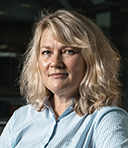Australian dollar's role in global funding toolkits
The Kangaroo market has been a regular source of funds for some of the world’s biggest issuers for many years, but volume has ebbed and flowed depending on market conditions. A record year in 2023 enthuses issuers but few are willing to bet on a structural uptick in scale.
FAN For Inter-American Development Bank (IADB), over the past couple of years the Australian dollar has ranked as the third-largest currency of both our annual and outstanding borrowings. The US dollar is consistently the largest currency of issuance.
In 2023, we added two new lines in the Australian dollar market – a January 2029 and an October 2030 – and increased our June 2026 bond to A$1.2 billion (US$780.5 million). The Australian dollar market has always been a strategic one for IADB as it regularly allows us to obtain size and develop a yield curve.
This is only possible with consistent demand, and the growth in various types of investors buying Australian dollars is important. A broader and deeper investor base means investors buy for different reasons. Some may focus on outright yield, others on relative value or FX rate. Though there may be no mandated Kangaroo investor base, investors choose to be involved for diversification purposes just as issuers choose to issue for diversification reasons.
As issuance amounts grow in the Australian dollar market and the secondary market becomes more active, investors take notice. As new and different investors enter the market, there is potential for larger issuance sizes and increased opportunity for issuers to become more active. As the amount of issuance increases, more and more investors become interested. It is a virtuous cycle.
MONTEIRO International Finance Corporation (IFC) issued a record A$5.5 billion in the Kangaroo market in the last fiscal year. This constituted around 27 per cent of our funding programme for 2022/23, which ended on 30 June.
This compares with 18 per cent in 2021/22. The share of Australian dollar denominated funding has been growing significantly and I would also say it is a very strategic market for IFC.
We have launched two new lines since the start of our new fiscal year: a December 2026 social bond and a new five-year October 2028 bond. We opened these lines so we can continue enhancing our yield curve to replenish headroom capacity and use our social project pipeline. We currently have seven active lines below our target threshold of A$1.6-1.7 billion and we intend to continue increasing liquidity in them.
BRUSAS We appreciate the diversification we can get with Australian and New Zealand dollars, and therefore NIB [Nordic Investment Bank] has been visible in these markets for many years.
NIB has so far issued in 10 currencies in 2023. As has been the case for a while, the US dollar, representing 40 per cent of total issuance, is the biggest currency for us in 2023, followed by sterling, euros, Norwegian krone and New Zealand dollars. We were very happy to be back with a successful NZ$700 million (US$420.8 million) transaction this year after being absent from the market for two years. The Australian dollar represents 4 per cent of our total funding for this year.
This year, globally, we have seen the biggest books ever in our benchmark transactions, which indicates that investors are keen on bigger public bonds that offer liquidity, rather than private placements with yield-enhancing features.
KOTAMRAJU We appreciate the strong and consistent support of the Kangaroo investor base. Asian Development Bank (ADB) has maintained a consistent presence in the Kangaroo market with an average of A$1.8 billion issuance per year over the last 10 years. The Australian dollar is a significant part of ADB’s funding programme and has maintained its position within our top four currencies of issuance over the past decade, top two in some years.
So far in 2023, the Australian dollar represents 5 per cent of ADB’s overall funding programme and is the third-largest issuance currency behind US dollars and sterling. Issuance so far this year totals A$2.2 billion across four transactions and three themes – education, gender and health. As of 30 September 2023, we have A$12.2 billion of Kangaroo issuance outstanding.
MORRISON Australian dollars is one of five currencies in the CPP Investments programme. By volume, it is our second-largest currency in 2023 behind Canadian dollars. We implemented Kangaroo documentation in 2022 with the intention of being a large and regular issuer in the Australian dollar market.
Our commitment to this market stems from our asset position in Australia, which at present is more than C$16 billion (US$11.7 billion) equivalent. As a result, our approach to this market has been programmatic with a view to consistent supply. We believe this message has resonated with investors, which helps explain some of our early success in this market.
Over a longer time horizon, the investor groups that participate in these deals ebb and flow based on a number of factors. One is the pickup of this product versus Australian Commonwealth government bonds (ACGBs) and semi-government bonds.
The swap market has provided the backdrop for this relative value in 2023 but it is unlikely to be structural on a long enough timeline. Our approach will remain consistent in varying market backdrops – it is not arbitrage-driven, given we are funding local assets.
WEHLERT This has been one of the most successful years in Australian dollars for KfW [Bankengruppe]. To date we have issued A$5.7 billion. Nevertheless, this is our fourth-largest currency after euros, US dollars and sterling.
Our funding programme for this year is €90 billion (US$97.1 billion), so I like to talk in absolute numbers – not just in percentages, which can sometimes be misleading. Having said this, with outstanding volume of A$18 billion KfW is the largest issuer in the Kangaroo market. This is quite decent volume.
For me, the Australian dollar market is an established one. I don’t think there is one specific reason for the good year we are having: it is just that this year everything lined up for issuers and investors. The basis worked in our favour, relative value worked and there was demand from a diverse group of investors.
KETTING BNG Bank is one of the largest issuers in the Netherlands and we have an annual funding programme of €14-18 billion. This year, we have issued in sterling, Australian dollars, Swiss francs, euros and US dollars.
Regarding the Kangaroo market, with more than A$1 billion raised in 2023 and an average duration close to 10 years, we are looking back at another successful year. We are working continuously to build our footprint and our curve in this market, and we consider Australian dollars as one of our semi-core currencies alongside sterling and Canadian dollars.
We have been experiencing ongoing demand and we have been able to regularly issue more than A$1 billion in new lines and taps to our outstanding ones each year. Looking ahead to next year and with much of our issuance having been in the longer end this year, it will be interesting to see if markets and investors are receptive to short- or intermediate-tenor transactions.







